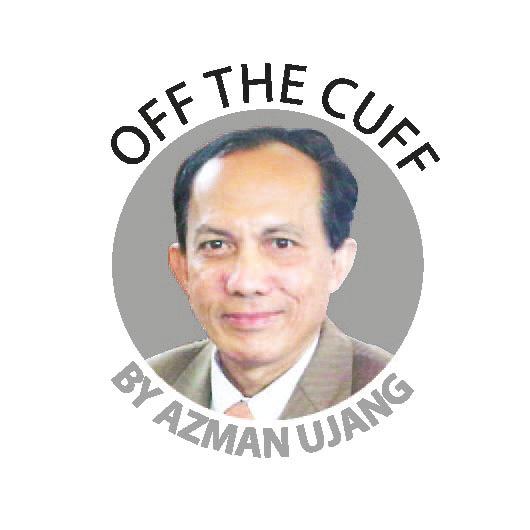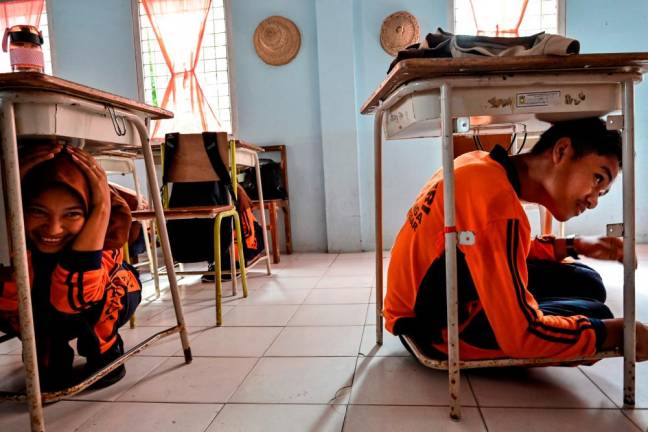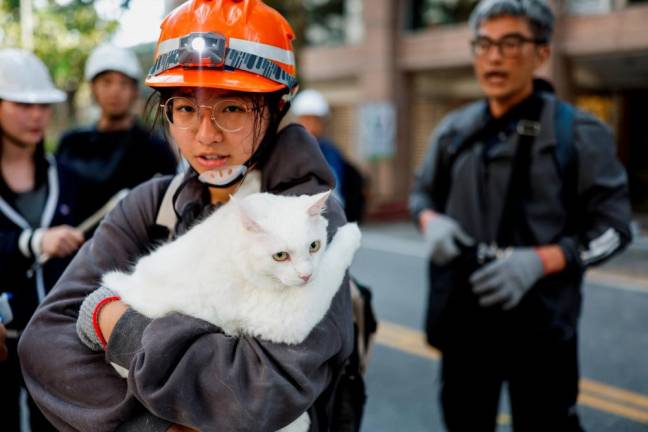THIS is something all Malaysians must do to flatten the curve on what could well be described as our health crisis.
No, I’m not referring to the Covid-19 pandemic, which infects the entire world since the past year.
It’s the non-communicable diseases (NCDs) or non-infectious medical conditions that’s the critical issue here.
And it warrants all Malaysians to lead healthier lifestyles from the norms they have been accustomed to all these years.
To adopt the Covid-19 jargon, a whole set of new normal is imperative because NCDs afflict Malaysians in exponential proportions.
They have taken and are taking a huge toll, both in terms of lives as well as being a financial time bomb.
Statistics from the Ministry of Health, the World Health Organisation and Unesco reported by the media are absolutely scary and even mind-boggling to say the least on how Malaysians are indeed an unhealthy lot.
Some 18 million are suffering from one or more of the NCDs and 15 million or half of our population are leading a sedentary lifestyle or lacking in doing physical exercise, the highest rate in Asean.
Apart from this, 15 million are obese – also the highest in Asean – while 11 million are sufferers of depression and anxiety, which is deemed a silent killer that reportedly costs the economy over RM14 billion per year.
It is also reported that 3.8 million Malaysians are cancer sufferers, and in 2019 over 18,000 people died from heart diseases, or an average of two persons per hour, and are the nation’s No. 1 killer. These are time bombs in themselves.
Malaysia is home to some 370 public and private hospitals, a phenomenal figure in itself which, strictly speaking, is not something we can be proud of.
Yes, our healthcare is touted as among the world’s best and definitely at the more than 120 government-funded hospitals, it’s virtually free for those in lower income group.
And to cite just one example, Hospital Kuala Lumpur (HKL), our oldest such facility, is one of the world’s largest general hospitals with 2,300 beds.
HKL alone has nearly 11,000 staff with a staggering annual budget of RM1.2 billion, higher than the budget for Penang, one of our most progressive states!
There are certainly many contributing factors for this most highly undesirable and unacceptable situation Malaysia and its population are digging themselves into.
Certainly a drastic change in lifestyles as far as the high consumption of sugar among Malaysians is one key element.
For many years until few years ago, the government even spent billions annually to subsidise the price of sugar to make it “more affordable” for Malaysians.
This had the effect of turning millions of Malaysians to suffer from diabetes, one of most dreadful NCDs, which leads to other equally deadly side effects as well.
In hindsight, the sugar subsidy was one big policy mistake apart from the fact that it led to rampant smuggling of the commodity to neighbouring countries.
If we were to grow healthier Malaysians moving forward and in the process curb the spiralling healthcare costs, the authorities also need to revisit the existence of 24-hour restaurants.
As someone who has travelled to at least 60 countries and cities worldwide, I can say that nowhere in the world are citizens allowed such a cavalier lifestyle of eating or over-eating, even during uncivilised hours when they should be getting enough sleep.
And in our case, the mainstay at the round-the-clock eateries (prior to the Covid-19 pandemic) is always the ever popular drink, the teh tarik.
We all know that the condensed milk which goes with the teh tarik is nothing but sugar, sugar and more sugar.
It’s a small blessing that in the past one year of the various stages of the movement control order (MCO), these restaurants are not operating 24 hours and perhaps the rate of diabetes has abated somewhat. At least temporarily.
It’s common knowledge that the staff of the Health Ministry are the most over-worked and physically-drained among all the 1.6 million civil servants. Please have mercy on them.
And needless to say, the personal sacrifices all of them make, especially the thousands of frontliners in the battle against the Covid-19 pandemic, are beyond words.
All Malaysians owe them a huge debt of gratitude and we must find a way to reward them.
Once the pandemic is brought under control with the largest ever vaccination exercise now under way, it’s also imperative that some of the ministry’s resources be diverted to boosting health literacy among Malaysians.
It was also reported that over 93% of Malaysians above the age of 18 are heath illiterate! This is a terrible situation to begin with.
There are at any one time five million young Malaysians in the school system and it’s long overdue that health education be part and parcel of the curriculum.
Of course, like charity, it should begin at home too.
Let’s make this a national agenda before our healthcare, or more precisely our sick care, costs become unsustainable.
After all, prevention is always better and much cheaper than cure.
Comments: letters@thesundaily.com











